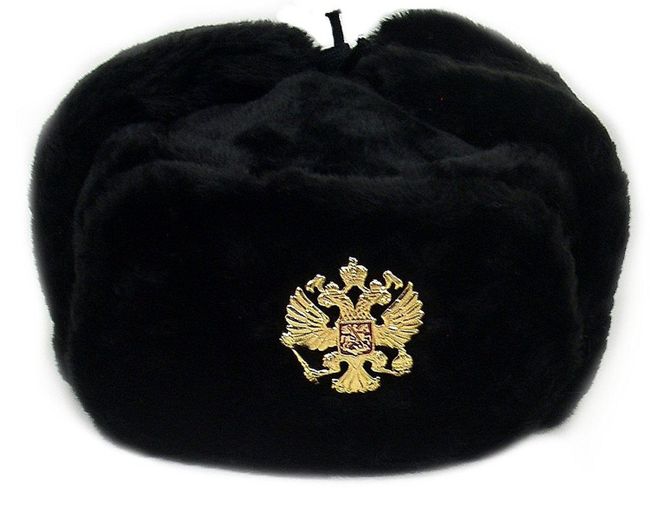Don Curry dreams of onion domes
ຈັດພີມມາ: 07.07.2019
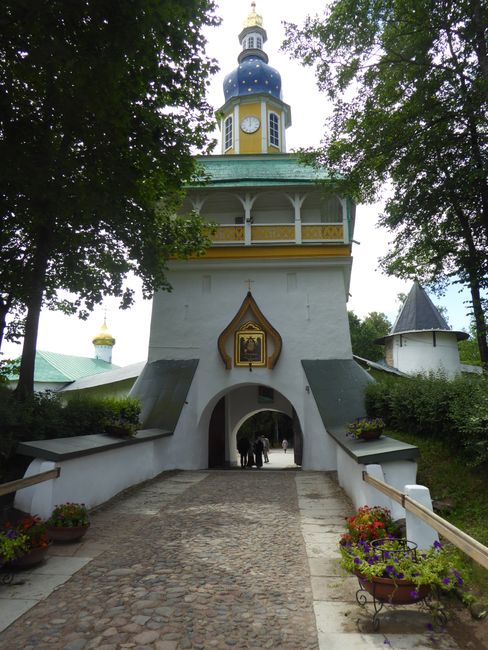
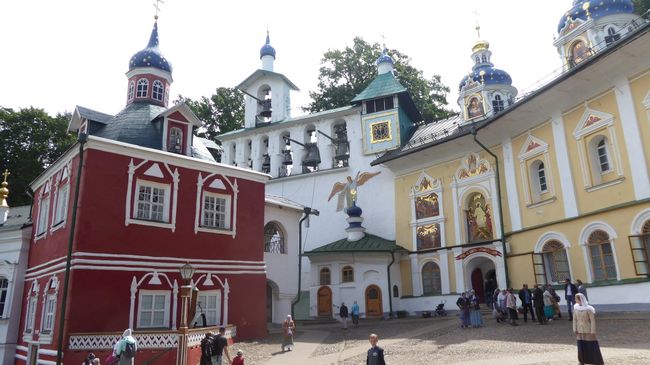
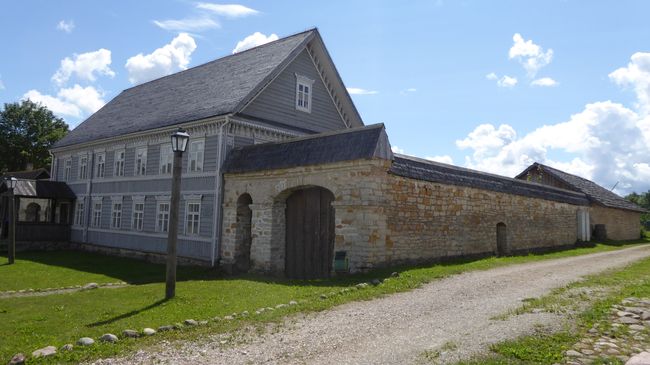
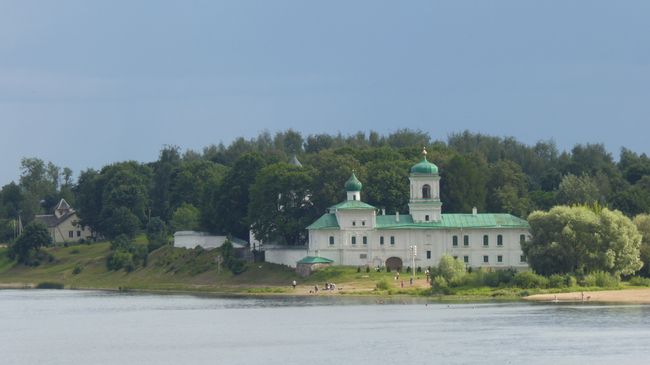
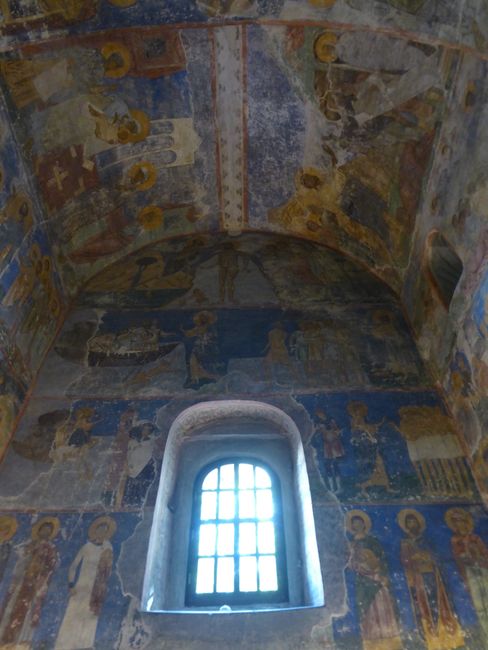
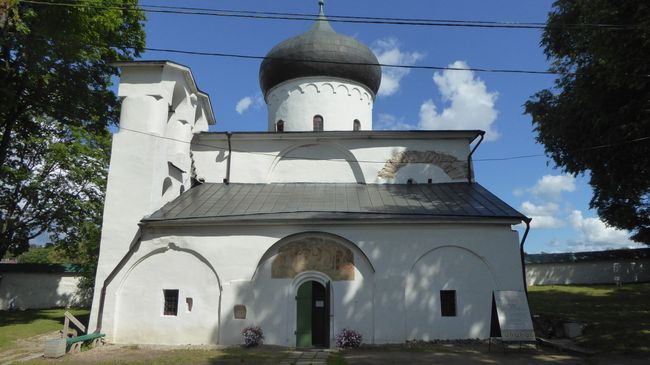
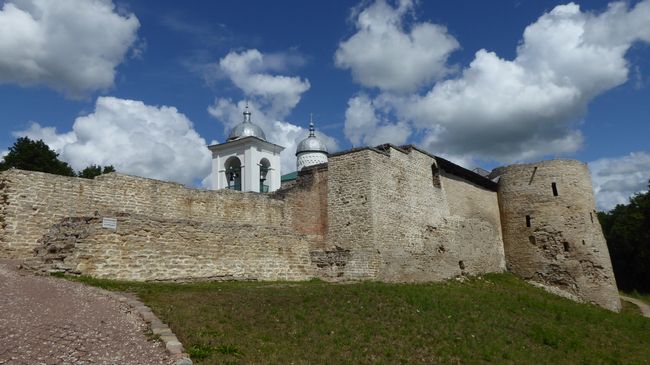
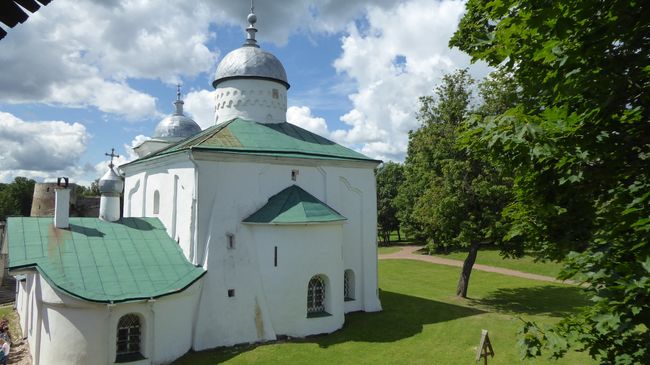
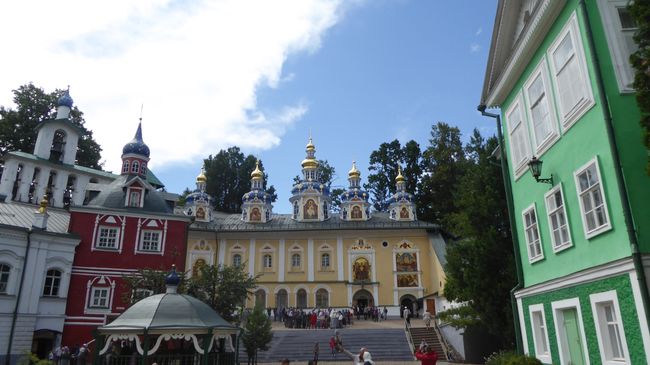
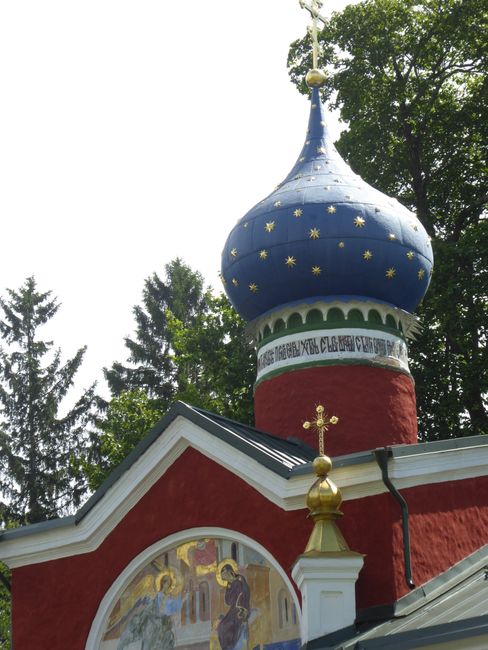
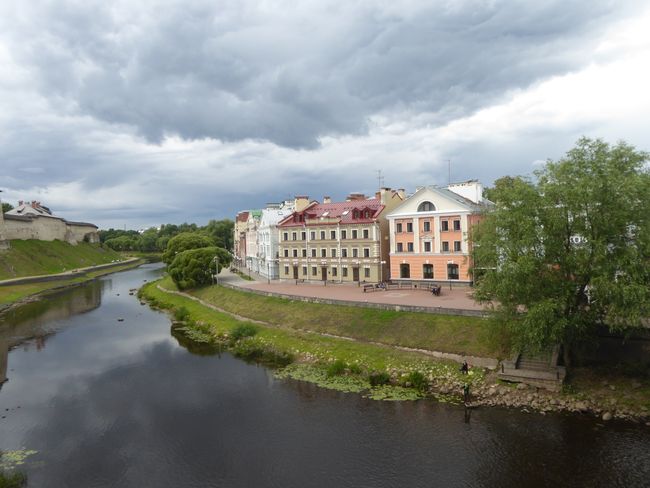
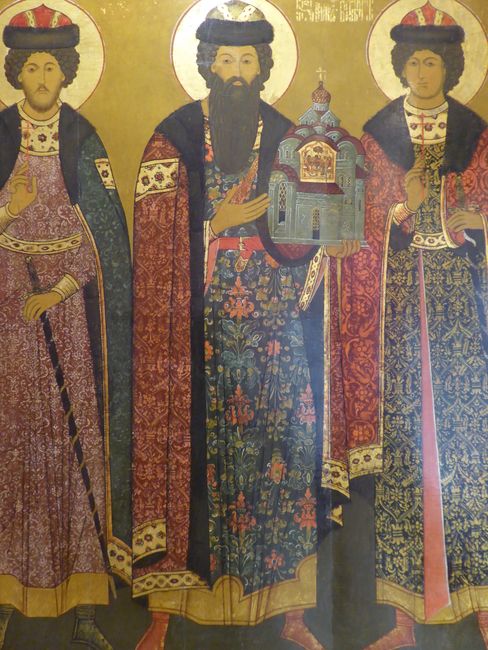
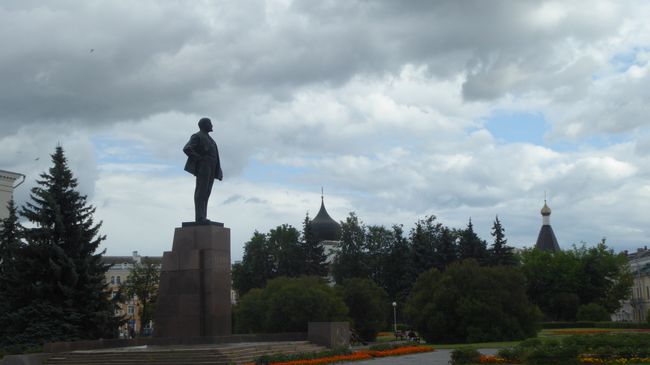
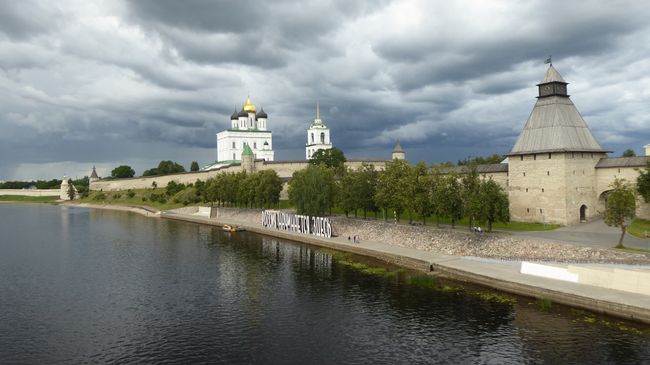
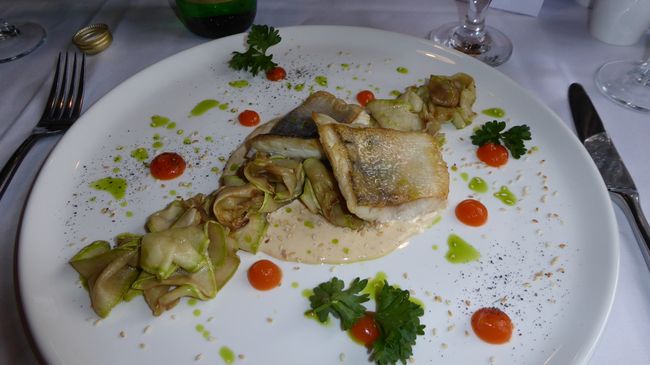

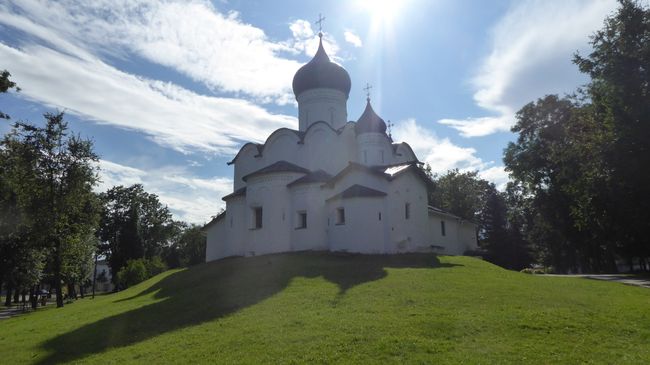
Don Curry had almost chosen the headline 'Don Curry is in love'. But this emotional extravagance seemed a bit exaggerated to him. Although today has already brought forth incredibly diverse positive feelings.
Breakfast was only partially included. Don Curry had almost gotten used to the fact that hotels force a breakfast on him or at least make him have breakfast, because he doesn't want to waste something that has already been paid for. So Don Curry resigned himself to the breakfast room of the Hotel 'Tamula' and had at least some scrambled eggs, bread, fresh cucumbers, and then a piece of cheesecake.
This way he could set off to his next border experience strengthened. It began surprisingly already in Voru, since the important outgoing road for him had become a rudimentary bumpy road for 2 kilometers. It continued bumpy as well when a large part of the shortest access route to the border crossing showed no asphalt at all.
But then the border lay in front of him. Don Curry hesitated a bit because the traffic sign on the road to the border clearly meant 'entrance prohibited'. But Don Curry drove anyway! After a short wait, the Estonian customs officer waved him over, made him get out of the car, and asked if he hadn't seen the waiting area? Huh? Wait area? He should turn around, register in the waiting area, and only drive to the border when his license plate is displayed on a large screen, the customs officer made it clear to him in somewhat broken English. Each border brought its own difficulties.
Don Curry turned around, discovered the waiting area, registered, had to pay €4.50 for it, and immediately saw his license plate light up on the large screen. So it was a waiting area without any waiting. But anyway: Don Curry drove back to the familiar customs officer. This time she was satisfied with him, checked the car, asked why he wanted to go to Russia, and finally wished him 'Have a nice trip!'
That was Estonia - now Russia was coming! Don Curry already knew the multi-stage procedure from his experience in Kaliningrad. He knew that the first post would come to the car and simply distribute the plastic strip. But this time the post did not come out of his cozy little house; Don Curry had to get out, and before he received the precious plastic strip, the post wanted to make a long phone call with someone. Was it about Don Curry? No idea! Maybe the delay was just a show of power.
At the second station, there was no waiting time this time. Delighted, Don Curry thought that he would probably get across the border quickly. But the procedures here were similar to those before Kaliningrad, but still somewhat different. Don Curry noticed this immediately when he had to fill out the entry card himself this time - twice of course. 'Write! Twice!' Margareta would have said sternly. But here nobody spoke German. Don Curry had to know himself what he had to do. After filling out the entry cards, all the data were laboriously typed into the computer, all the documents were copied, and in the end an entry card was returned to Don Curry. He was allowed to continue, allowed by the mistress of the second station.
The third station was the actual customs control. The necessary forms for self-service were already available here, there was even an English 'sample' for the non-Cyrillics. Don Curry had extensively learned how to fill out the forms with Margareta, and here he could apply his acquired knowledge purposefully. He was in the process of filling out the duplicate copy when another strict customs officer asked him to switch from the EU side of the border clearance to the Russian side. What did that mean? Don Curry didn't wonder about that, he just did it. Here the classic control began: Don Curry had to open all the doors one by one, the flashlight came into use, even a sniffer dog was present this time; for the first time, Don Curry even had to briefly open his travel bag.
The customs officer was initially satisfied, but then demanded the completed forms. He could only show one, because she had rudely interrupted him while he was filling out the second one. She explicitly demanded 'twice' - but in Russian, of course. Don Curry thought almost nostalgically of Margareta and her strict smile. Finally, the customs officer brought him another form that Don Curry did not know at all: it was exclusively in Cyrillic/Russian. He quickly filled out the second customs declaration, but he couldn't cope with the Cyrillic form. The strict customs officer called a young man who spoke good English. He explained to Don Curry what he had to enter in each line. And he handed Don Curry another form that had the same questions in English. Of course, the new form was not enough, Don Curry should fill out both, said the chief customs officer. Finally, Don Curry handed all the completed forms to the boss, who passed them on to an older woman at the computer. Don Curry now had a break. With interest, he could observe how the older woman, the young man, and the boss intensively examined his forms and, above all, his vehicle registration certificate. The older woman repeatedly reached for the magnifying glass to be able to transfer the information there to her computer. Don Curry stood waiting and amused in front of the counter for at least 30 minutes. Margareta had always understood how to delegate the work to him, here the entire personnel of the border station was busy recording Don Curry's data. Nothing was happening all around.
Finally, the older woman at the computer stamped the forms, handed Don Curry a customs declaration back, and the barrier in front of him lifted. At the fourth station, he quickly handed over the plastic strip, with the young man there wishing him 'Have a nice trip!' - in clear German. Then he drove off happily and stood in front of the fifth station. It had never been there before! Don Curry waited to see if the barrier would open. But nothing happened. Then another car was processed and approached his station. The driver got out and walked around the booth. Curious, Don Curry followed. And indeed, on the opposite side there was a counter, but it was so low that Don Curry had to kneel down to see the woman behind it. Here, the road usage fee for all of Russia had to be paid. 'Carta', demanded the woman, and Don Curry willingly handed her his credit card, since he had no idea how much he had to pay for using all Russian roads. If Dobrindt or Scheuer or any other wannabe politician from the CSU had set it, it would probably be expensive: because Don Curry was a foreigner here, and foreigners were supposed to pay, according to the Bavarian pub table. When Don Curry finally saw the amount debited, he winced involuntarily: 150 rubles! That's equivalent to 2 euros, and that didn't promise much in terms of the quality of Russian roads.
In this expectation, Don Curry would not be disappointed. Driving on the Russian road network always requires an extremely attentive pothole radar and a high empathy towards Russian road users - there are no others here.
However, Don Curry didn't have to drive very far for now. His first destination was already in the middle of the border town Pechory. Here stands an ancient cave monastery that has been inhabited by Russian Orthodox monks for centuries. Their mortal remains end up in extensive underground passages below the monastery church. These burial caves are the actual attraction of the monastery, but they can only be entered as part of early registered guided tours. Don Curry didn't have the opportunity to do that, he just wanted to see the rest of the monastery; and he would not be disappointed.
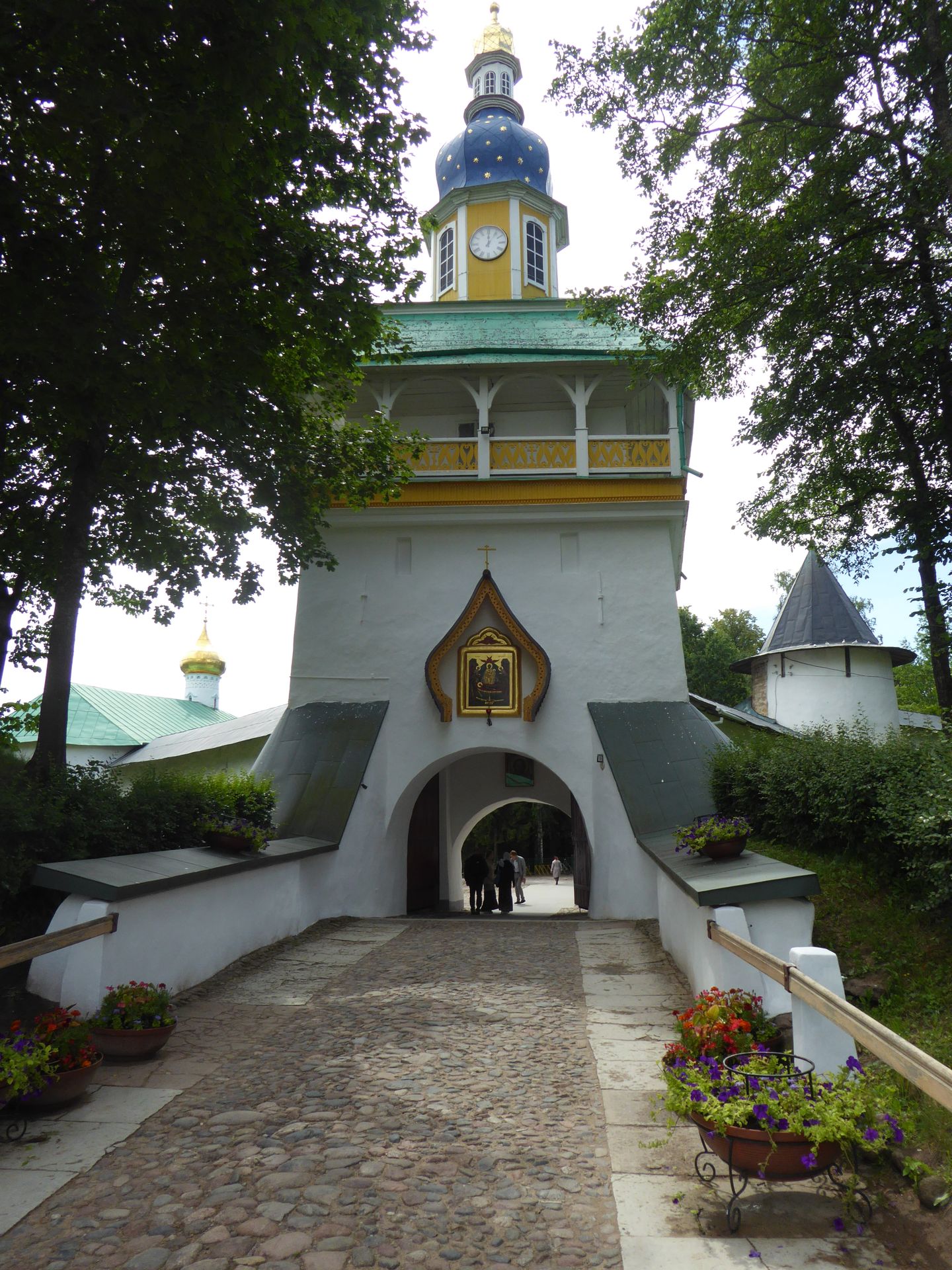
Only about 2.5 km from the Estonian border lies a place that can be described as an absolutely Russian wonderland. It can hardly get more typical and original than this. Behind the mighty white monastery walls, churches and other buildings of incredible splendor and above all, audacity to use bright colors beyond any kitsch border rise. The whole thing is so exaggerated that it becomes artistically valuable again. And if all the visitors - including all the young women - walk around in ankle-length skirts and multi-colored headscarves, the scenery becomes even more otherworldly, world-distant, and elevated. Religion becomes art here, consciously and sustainably breaking the boundary of the everyday. Either you go along with it or you run away. Don Curry cannot see a middle ground.
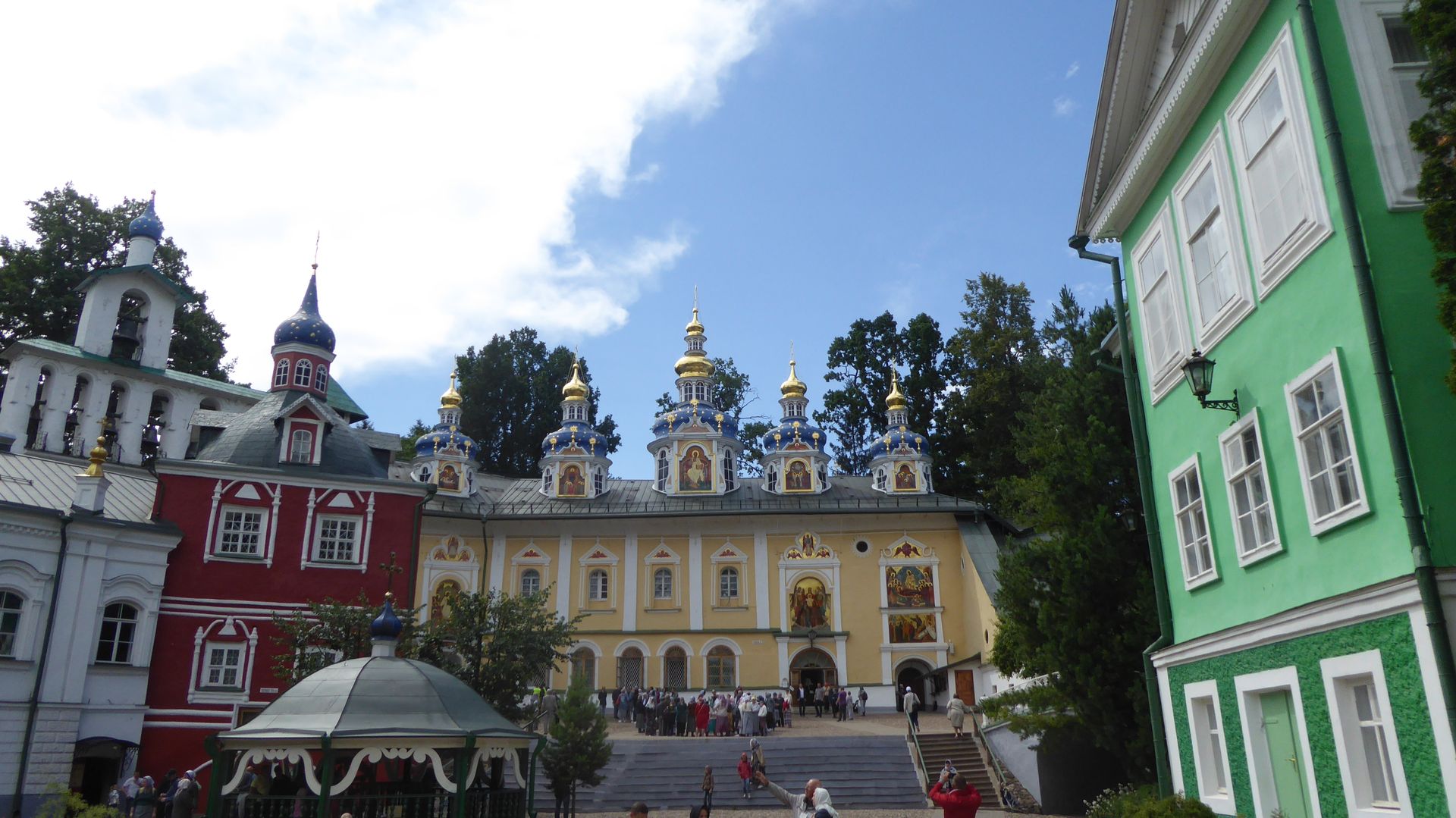
He himself can easily get involved with it. He likes the bright colors side by side, the star-studded, midnight blue onion domes, the restless gestures of worship inside the churches, the contradiction of large urgent groups of pilgrims and individual religiosity. Without any transition, without a gentle buffer zone, he had landed right in the middle of Russia, in its spirituality, its mysticism, its heart.
What a contrast: between the strict formality of border control and the exuberant, vibrant religiosity, not even 30 minutes apart. But Don Curry could feel it: the real Russia was here. Not the administrative state that wants to control everything, but the church that conjures up the desires and wishes of the believers in colorful bliss.
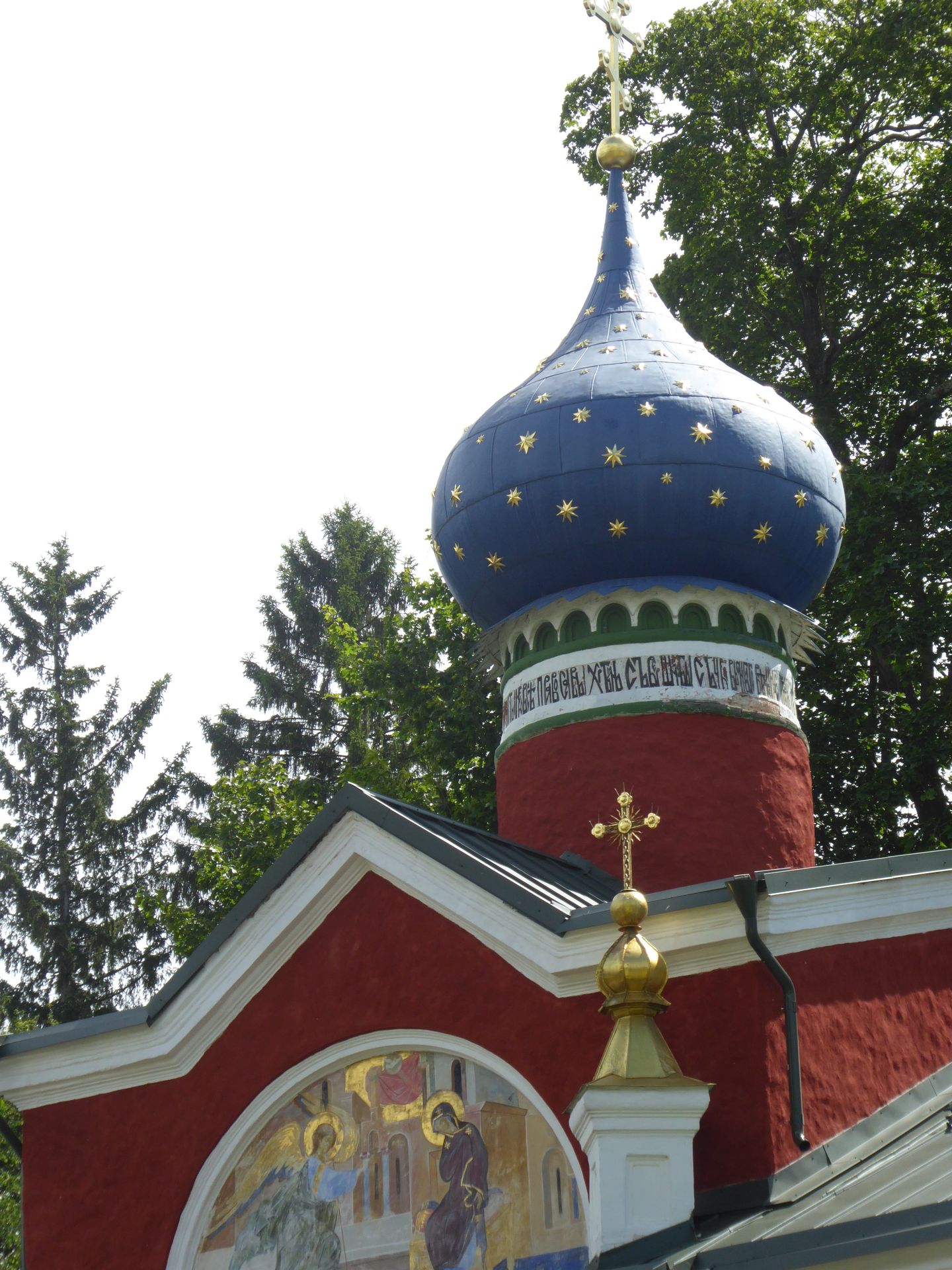
Enchanted, Don Curry also left this place. This first glimpse into the true Russia had done him good. It was more human, but also a lot more foreign than he had thought so far. He wanted to explore that further.

His next destination, on the other hand, seemed very Central European: a classic castle complex, one of the oldest in Russia. It is located in Stary Izborsk and was originally intended to protect the independent state of Pskov towards the west. The pastel-colored wooden houses in the center of the small town were almost more spectacular than the medieval fortress itself. Here Russian life culture became visible. The fortress itself, with its mighty walls, defiant towers, and massive ramparts, differed only by the Orthodox church within the castle walls from German or French castles. However, the Russians seemed to love it very much, which explained the massive rush on this Sunday afternoon.

Afterwards, Don Curry felt a little emptiness inside. His stomach, which had long since disposed of the Estonian breakfast, also longed for new culinary adventures. So Don Curry went to the only village inn where he was able to secure a nice place on the veranda. As feared, there was no English menu here, but at least an English-speaking waitress. From the many Cyrillic letters, he had at least identified two classics: borscht, the Russian beetroot soup, and kvass, the fermented drink made from black bread in Eastern Slavic countries. Both were simple, good, and delicious, and Don Curry paid €4.00 for his lunch.
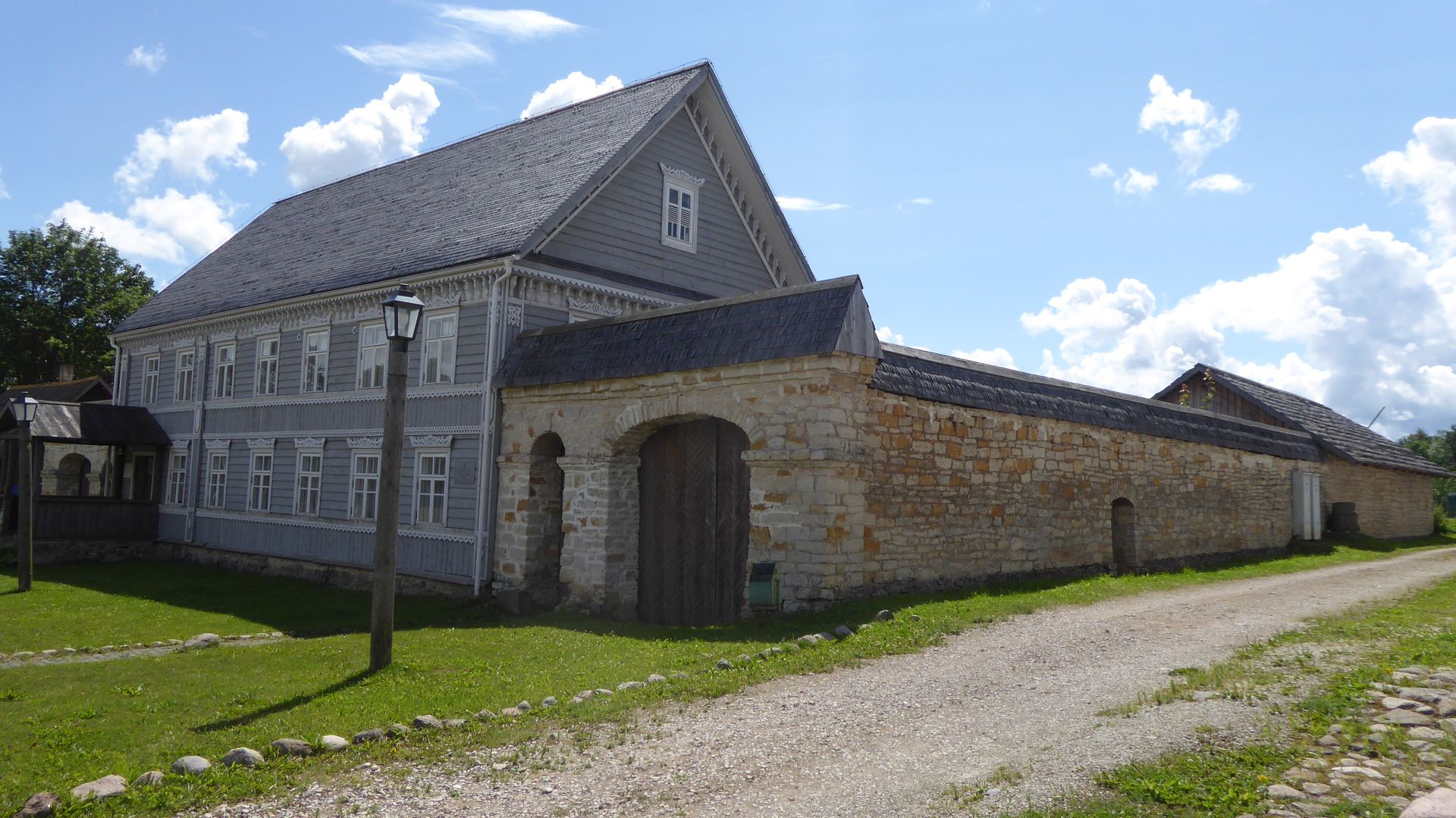
Now he was heading towards his actual destination of the day, the old city of Pskov, which had ruled as a former Hanseatic and princely city for a long time. Numerous churches and monasteries still bear witness to its pride and heyday in the Middle Ages. One of them, the Mirozhsky Monastery, formed the hors d'oeuvre, the Overture of the Pskovian cultural treasure, due to its location on the outskirts of the city. It was only accessible through a narrow, low gate in the white monastery wall. Behind it was a well-kept garden and park area, from which two churches predominated.
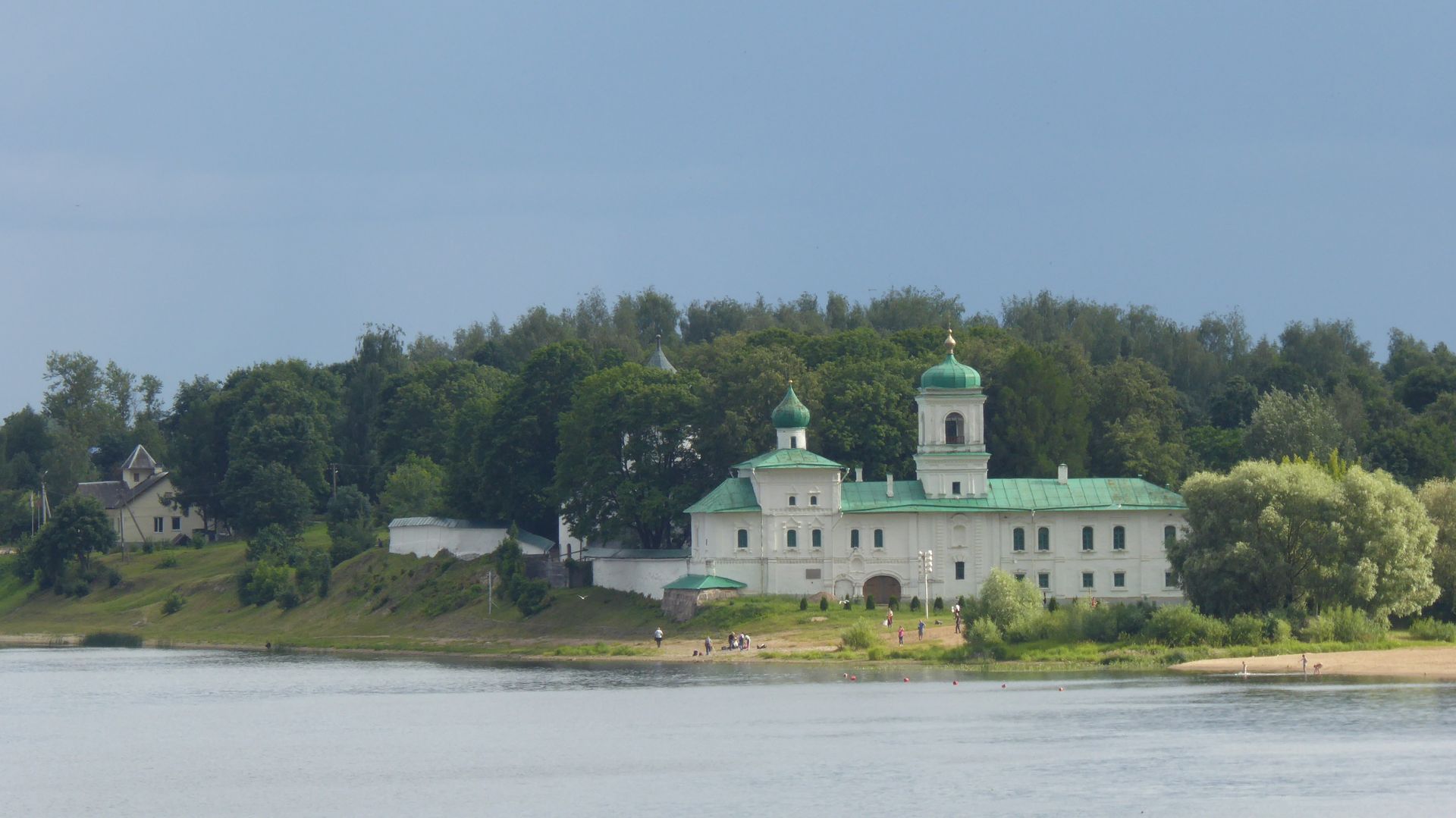
The older Transfiguration Cathedral dates back to the 12th century and accordingly shows rather archaic forms and a quite massive onion dome.

However, its real significance only unfolds inside, where almost all the original frescoes from the time of its construction are preserved in incomparable color splendor. Don Curry was almost breathless when he entered this Orthodox Sistine Chapel. Even though the choir and the dome were closed off due to restoration work and partly covered, the rest of the church was bursting with magnificent biblical scenes on a blue background. For the first time, Don Curry genuinely regretted his lack of knowledge in Russian because there happened to be a detailed guided tour in the church, which was applauded and praised vigorously by the participants afterwards. Don Curry could only rely on his eyes and yet he was extremely delighted.

From the riverbank of the monastery, Don Curry had already caught a first glimpse of the Kremlin of Pskov with all its metallic glittering onion domes. Already now, he was aware that the real highlight was waiting for him here. The hotel he had booked, 'Golden Embankment', was not coincidentally located directly opposite the Kremlin, and Don Curry had even treated himself to a room with a Kremlin view for an additional €5 per night.
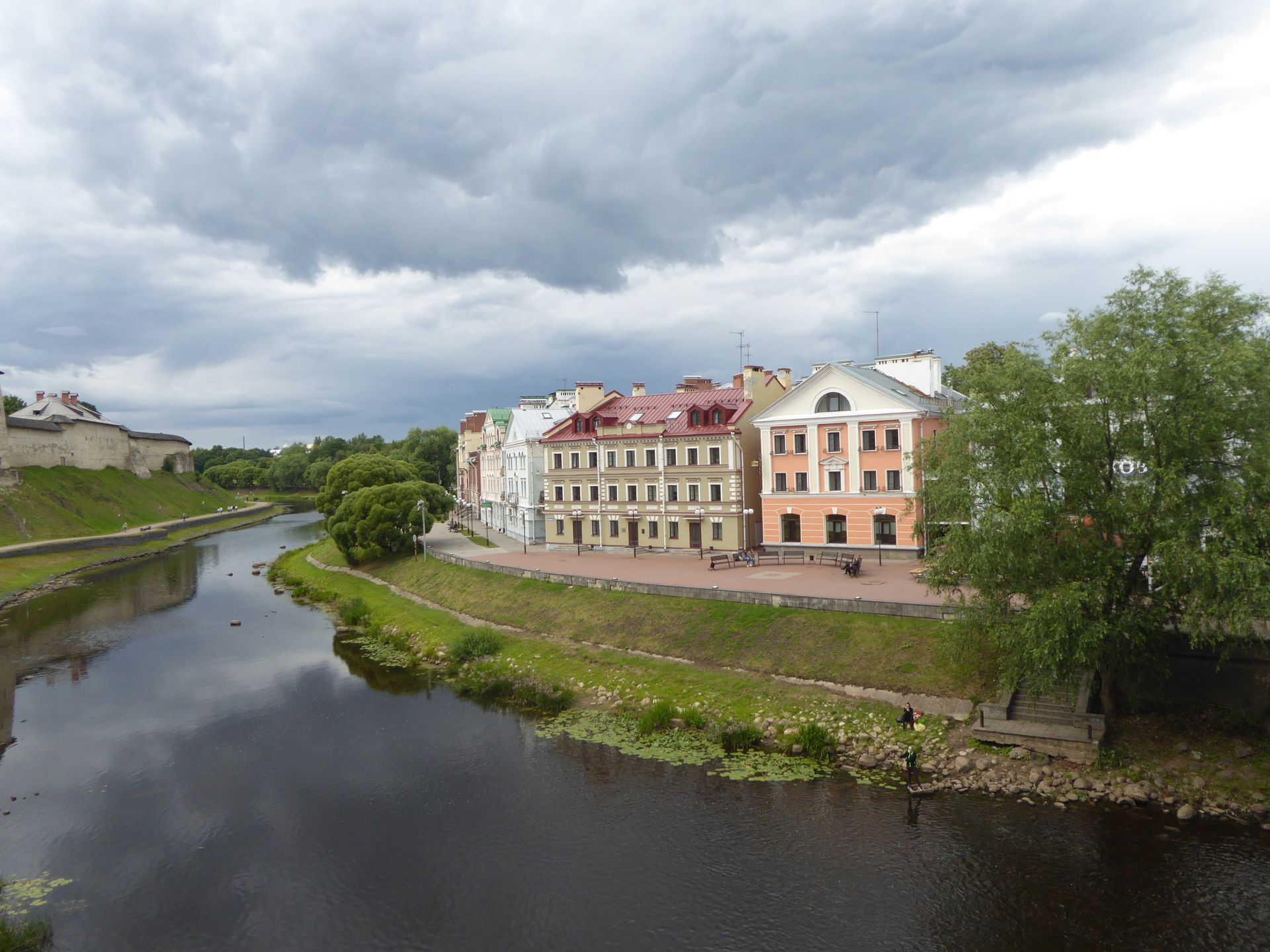
Since he had arrived at the hotel early in the afternoon, he used the time for an extensive walk through Pskov. Past a dozen medieval churches with at least one onion dome, mostly several, he headed towards the Pogankin Palace, a magnificent, defiant palace that is part of the Pskov Historical Museum. Unfortunately, major restoration work is currently taking place in and around the palace, so Don Curry was directly referred to the neighboring museum.
Don Curry energetically went to the museum ticket office and ordered 'one ticket' in clear Russian. The older cashier repeated his request, asking continuous Russian questions, and then began to quietly lament about this difficult visitor. Don Curry suspected the problem, because a list of numerous entrance ticket options was displayed at the cash desk, depending on what the visitor wanted to see. In her growing despair, the cashier finally called a young coat check girl - of course, a Russian museum has a coat check girl! - who came running immediately and explained to Don Curry in English what the different ticket options meant. But since Don Curry was mainly interested in the old Pskov icons, the right ticket was quickly determined. Don Curry thanked the interpreter and handed the cashier a 500-ruble note to pay the 350 ruble entrance fee for foreign museum visitors who want to admire old Russian icons. Once again, the old cashier began to lament softly to herself. In between, she briefly hoped that Don Curry might suddenly understand Russian by a miracle, but then she obediently wrote on a piece of paper: '50'. Don Curry understood the message and the cashier's shortage of change, collected 50 rubles, and received a smile that oscillated between gratitude and pitiful uncertainty.
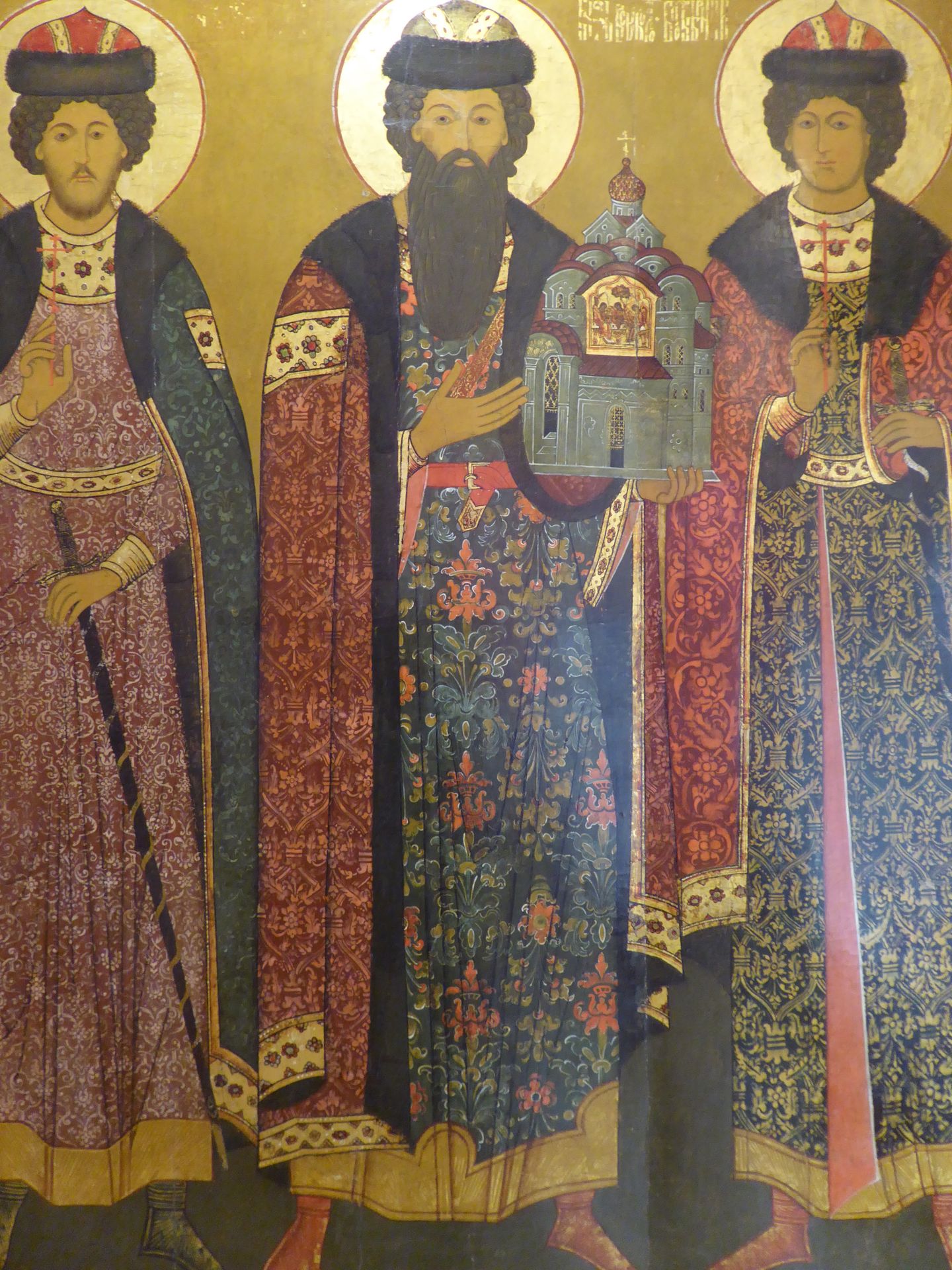
Finally, he held his ticket in his hands, went 5 meters further to the inspector, who pointed him to a door 2 meters away. Behind the door, another lady was waiting for him, who showed him that he had to put blue plastic bags over his shoes. So Don Curry shuffled through a truly remarkable icon collection with numerous other visitors. However, after the 2nd room, it was already over. In the actual Pogankin Palace, there would certainly have been much more to see. So Don Curry had to come back. With this good feeling, he hurried to the exit, where the sorrowful cashier suddenly rushed towards him and handed him two leaflets with a cautious smile. 'This is in English', shouted the coat check girl from the cloakroom - and Don Curry thanked both of them with a deep grateful bow.
Meanwhile, it was sunny outside. Don Curry enjoyed this unexpectedly photogenic city, which repeatedly offered surprising, above all typically Russian motifs: From the large Lenin statue backlit to the many old churches with their magnificent onion dome spires.
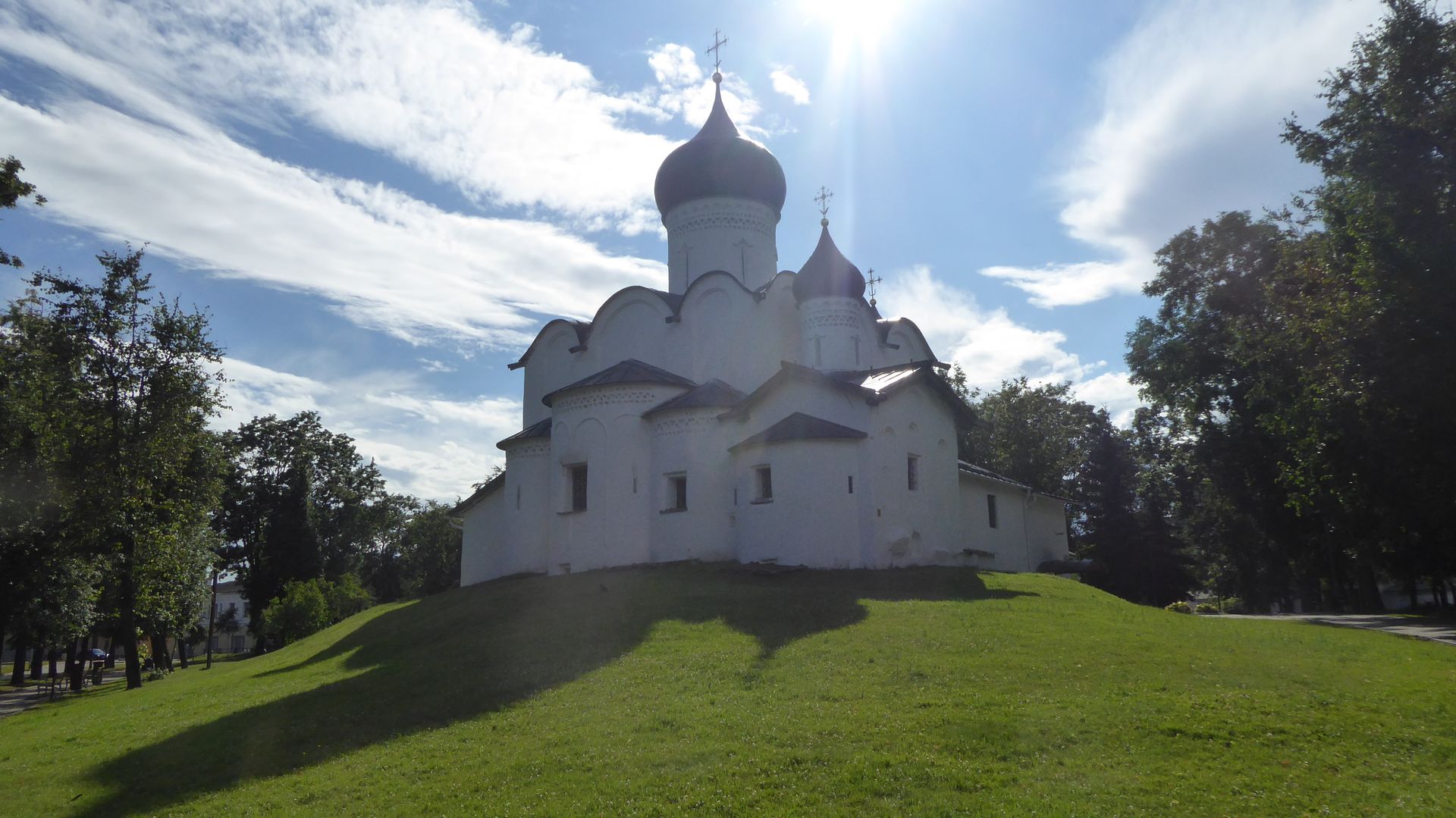
Finally, he hurried to the Welikaja Bridge directly at the Kremlin. Fantastic photo opportunities should open up here now. And indeed: the Kremlin shining in the soft evening light in front of the dark cloud wall in the background presented an impressive picture-perfect motif. But after taking the first photo, the camera battery gave up, and the spare battery in Don Curry's pocket turned out to be just as empty. So he quickly went back to the hotel, inserted a fresh battery into the camera, and returned to the bridge. But these 20 minutes had been crucial. In the meantime, the dark cloud wall had moved in front of the sun, the picture book motif was irretrievably lost.
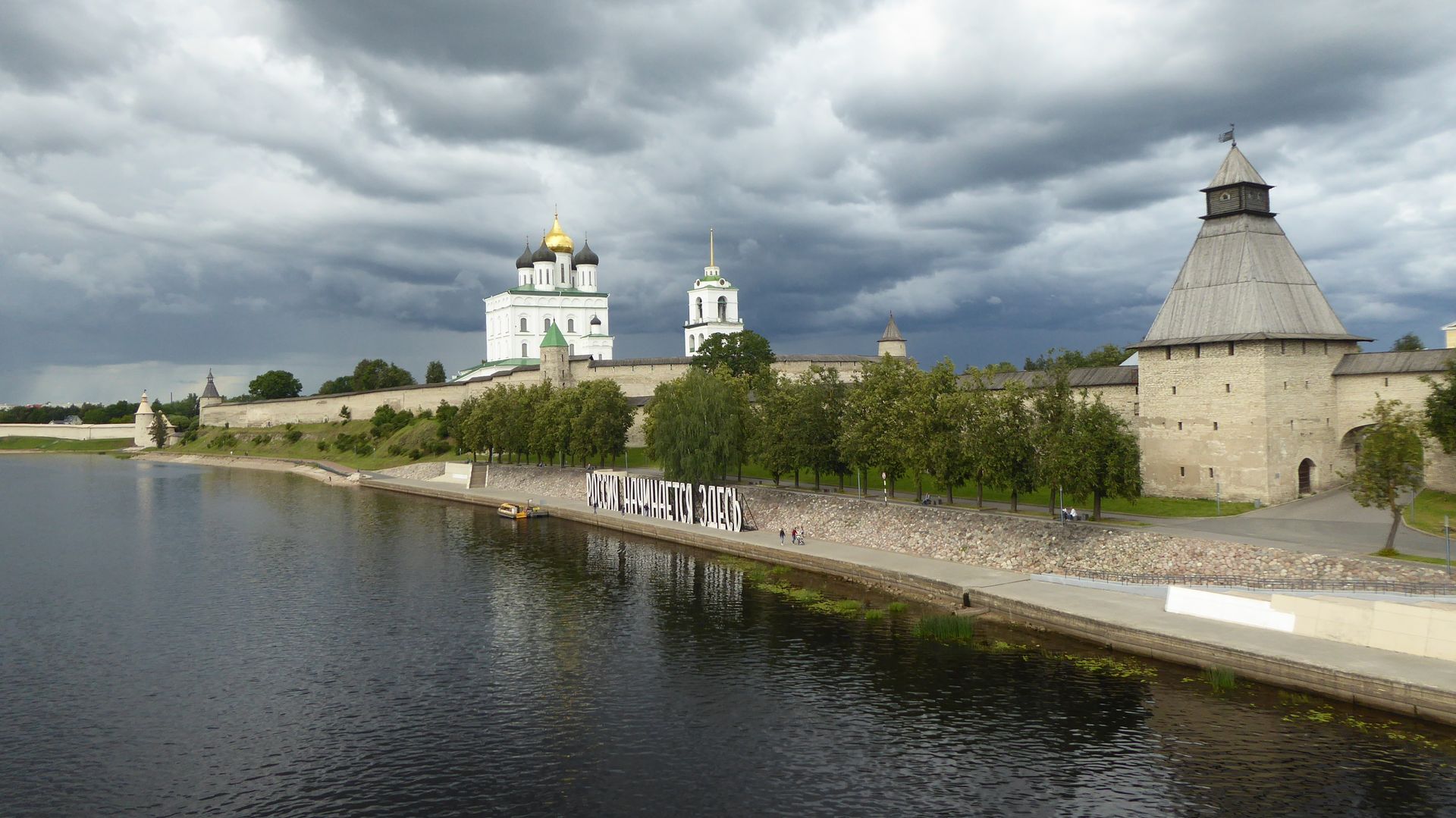
Slightly frustrated, Don Curry returned to the hotel to console himself with dinner in the hotel restaurant 'Rusakow'. When he entered the rather plushy furnished restaurant, he was somewhat startled: he was the only guest. But the nice, uncomplicated nature of the young waitress soon dispelled any reservations he may have had. The English translation of the menu, which the attentive waitress brought with her, promised 'new Russian cuisine'. Actually, it sounded interesting what the restaurant had to offer.
Ordering proved to be somewhat difficult: on the one hand, because the waitress spoke some English but couldn't do anything with the dishes that Don Curry showed her in the English menu. So Don Curry identified the dishes in the Russian menu based on the price and got the secretly feared answer already with the appetizer: 'We don't have it!' He knew these former showcase restaurants from socialist times with their ambitious menus and the highly incongruous reality. That was exactly what he feared here as well. But he was unexpectedly disappointed. With his second appetizer choice, the waitress made the typical Russian hum of approval, and the main course went smoothly as well. As drinks, Don Curry ordered a Russian Doktor Faust beer from a St. Petersburg microbrewery with a proud 7.5% alcohol content and a wonderfully spicy sweetness, accompanied by a sparkling water that tasted extremely salty.
Then the appetizer came. Don Curry had opted for Murmansk cod smoked on ash wood with various salads and quail eggs under a honey-dill sauce. The dish not only arrived visually appealingly presented, it also developed a convincing bouquet of flavors. Don Curry began to revel. When the young waitress asked for his satisfaction, he could only express his strong praise. Beaming, she went off, only to serve the main course shortly afterwards: pan-fried pike perch on zucchini pappardelle with sesame cream and carrot jam, again an optical and even more a culinary work of art; aromas to melt away! He said that too - in simpler English - to his ambitious waitress when she asked again.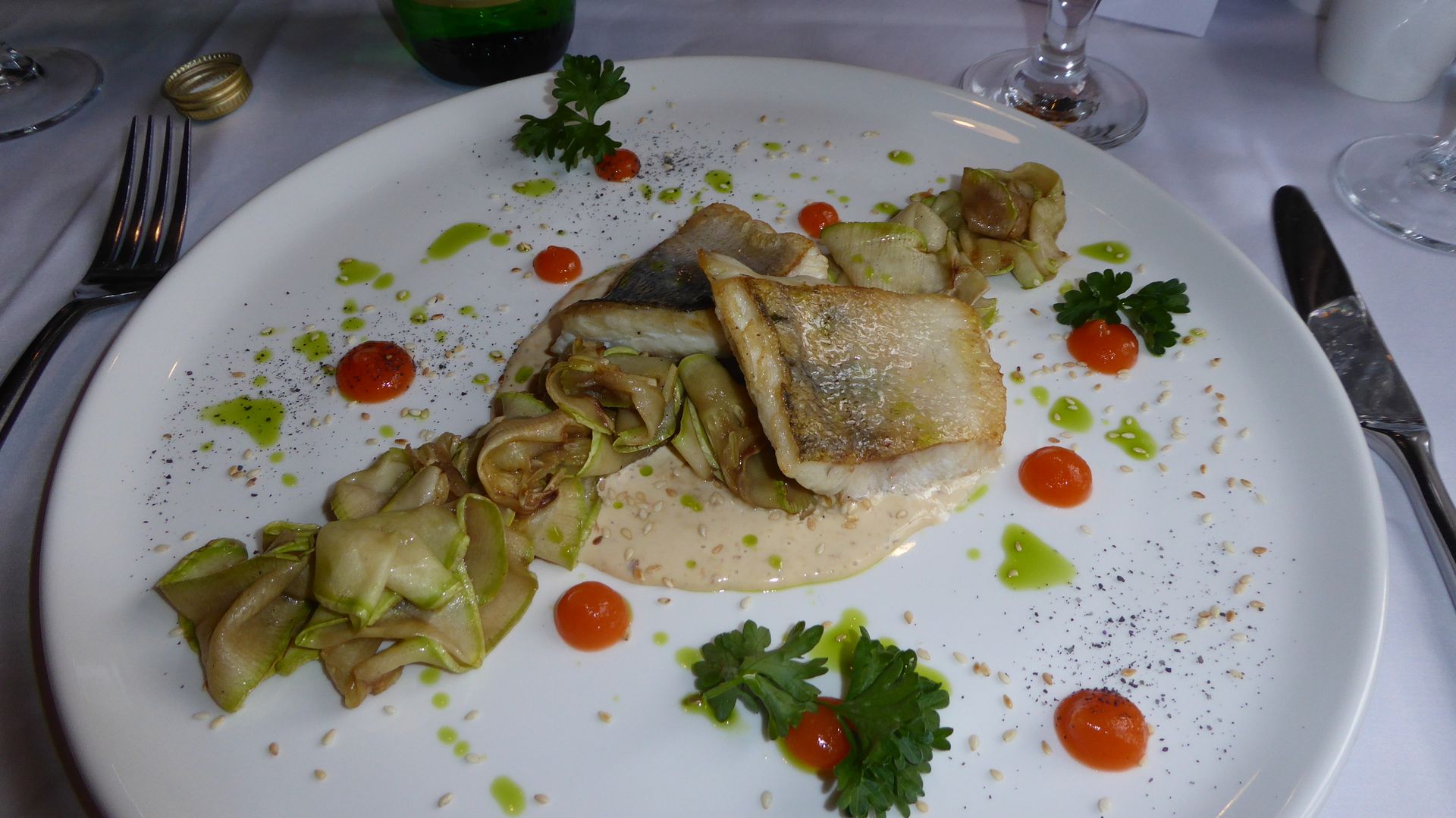
Normally, Don Curry doesn't care for desserts: too sweet, too fatty, too unnecessary. But after these two courses, he considered the restaurant absolutely dessert-worthy. He chose a evening primrose - panna cotta with salty meringue, served in a willow basket, and absolutely 'first-class'! Before the attentive waitress could ask again, Don Curry immediately passed on the unreserved praise to her. An unexpectedly delightful conclusion to a delightful day. (And the cost of this brilliant three-course meal including drinks amounted to €20.50).
Since it was still early in the evening, Don Curry went to the bank of the Pskowa River right in front of his hotel restaurant, with a breathtaking view of the Kremlin on the opposite bank. At the point where the Pskowa flows into the Welikaja, there are not only impressive fortifications on both sides, but also the rustic brewery restaurant '903'. Don Curry was still considering whether he should stop here, when a tremendous rain shower began. The only escape was the outdoor terrace of the beer pub, where Don Curry found an empty table with a Cyrillic menu for food and drinks - and a push button on the table to call the waiter. She immediately came to call Don Curry over, made it clear to him in Russian, but unmistakably, that she would not serve outside in this weather. So he had to go inside.
So he went inside the '903', ordered a home-brewed 'Great Porter', and a Pskowskaya vodka. Then the rain had almost stopped, Don Curry returned to his wonderful hotel with a view of the Kremlin, was a little bit in love with the so incredibly positive impressive Russia, and dreamt of onion domes...
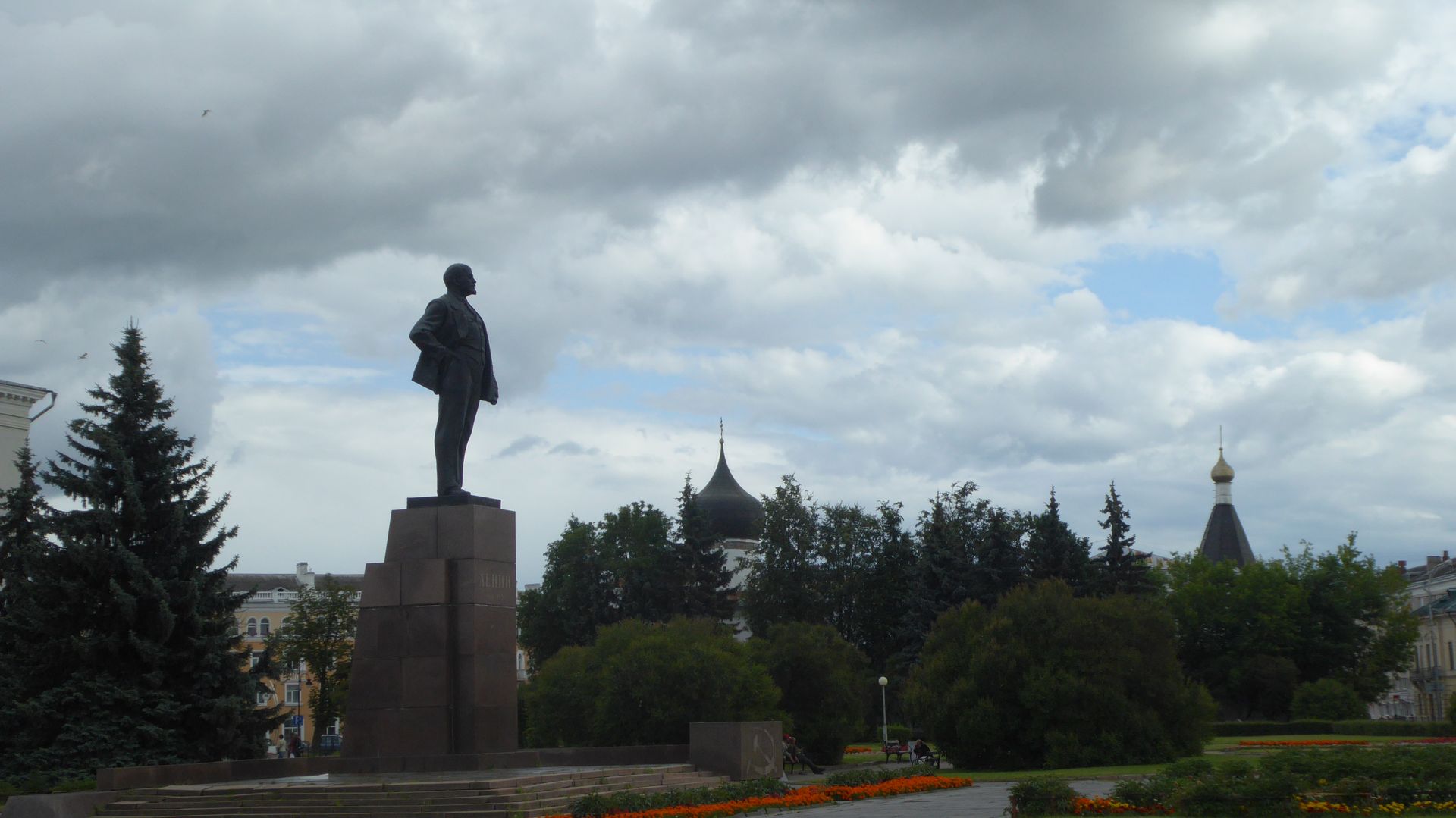
One of many - Medieval church in Pskov
ຄໍາຕອບ
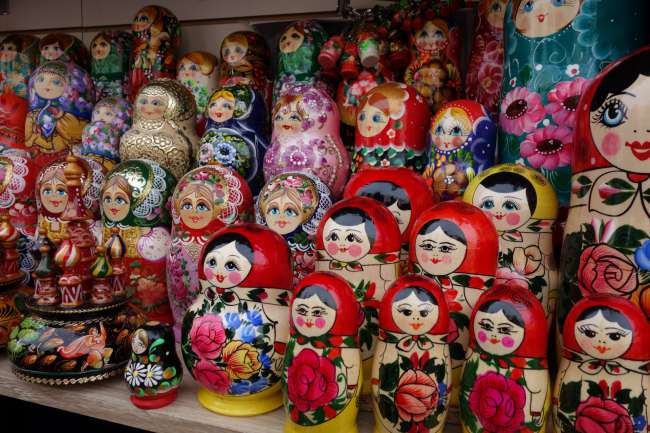
ລາຍງານການເດີນທາງ ສະຫະພັນລັດເຊຍ

